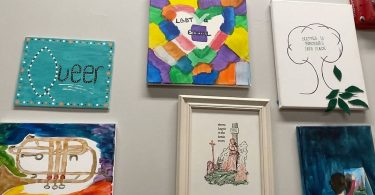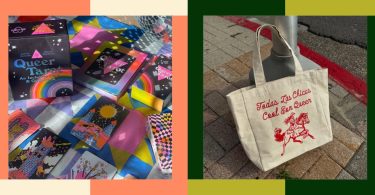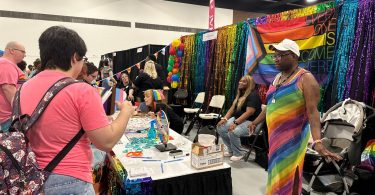NEW YORK — Six in 10 LGBTQ+ adults don’t feel accepted by some of their closest friends and family – due to their gender identity or sexuality, according to a recent poll. The survey of 1,000 people within the LGBTQ+ community finds that 39 percent had a falling out or lost touch, with friends as a result, while 30 percent had issues with family members.
Another 63 percent say it’s difficult to understand why their loved ones couldn’t accept them for who they are. Despite falling out with some people, 41 percent say their relationship with other friends and family members is stronger than ever.
People in the community knew they had been accepted by loved ones when they were being treated the same – as if nothing had changed (35%). For 29 percent, feeling confident in talking about their love life is a small act that made a big difference, while 27 percent appreciated someone standing up for them, if necessary.
Other small acts of love that made people feel loved and accepted include doing household chores together (12%) or being made a cup of tea (13%). Others say it was the simple things, like being invited over for dinner (17%), or told how nice they look (12%), which mean the most.
“It is often small acts of love and kindness from those closest to us that go a long way. That’s why this year, we’re focusing on these small daily acts to support the LGBTQ+ community,” says Ayca Turgay, brand communications director at Procter & Gamble, in a statement. “When someone washes up your plate for you, or makes you a cup of tea, or puts the washing away, it makes you feel loved – and for the LGBTQ+ community, these things can mean so much more in their journey to acceptance.”
63 percent say it’s difficult to understand why their loved ones couldn’t accept them for who they are. (© Mego-studio- stock.adobe.com)
The study finds that 31 percent of respondents felt they were treated differently after coming out than before. Additionally, 27 percent were sad to see others talking negatively about them to other people – while the same number were told outright their identity was disagreeable.
Meanwhile, 22 percent were left heartbroken when someone who was previously close to them simply stopped inviting them to things. However, 48 percent feel anyone who doesn’t accept them was never a true friend to them – with 28 percent believing those who are prejudiced against those in the LGBTQ+ community are to be pitied, not argued with.
Despite that, 23 percent admit they do feel bad about themselves when some don’t accept them. Another two-thirds find it upsetting when negative statements about their sexuality or gender identity are passed off as “banter,” according to the figures from Fairy and Ariel. Forty-one percent said coming out was a bit harder than they expected, according to the OnePoll data.
“Small acts of love can make just as much of a difference in making others feel loved and accepted for who they are – especially to people in the community and charities who support them,” Ayca Turgay adds.
Acting as if nothing had changed
Feeling you can talk about your love life
People tell you they love you
People stand up for you in difficult situations
People include your partner for get-togethers
People say they only want you to be happy
Able to have deep conversations about relationships with them
Having a general sense of relief
People tell you outright they don’t care about sexuality/gender identity
People are happy to talk openly in front of the children in the family
People show physical affection (e.g. a big hug)
People are interested in your love life
People ask if they can come to a Pride event
People make light-hearted fun of you for it (in the same way they’d make fun of you for anything else)
Others ask if there is anything they could do better to make you feel happy and included
You’re given more emotional support than usual
Invited over for dinner
The children of the family don’t know what the fuss is about
Older members of the family are told about your sexuality/gender identity
Friends are told about your sexuality/gender identity
Others make you a cup of tea
Others have thought of great ways to explain what’s going on to children in the family
You do household chores together
You’re told you look nice
You’re given help to get ready for a big event
South West News Service writer Richard Jenkins contributed to this report.
Tags: gender identity, kindness, LGBTQ, onepoll, relationships






